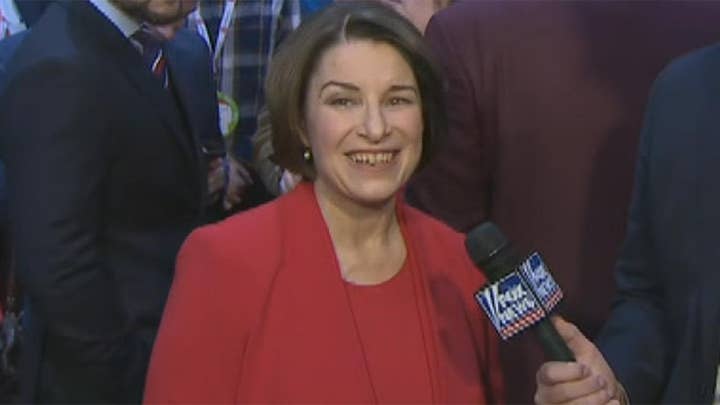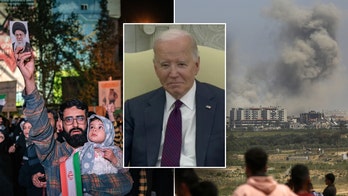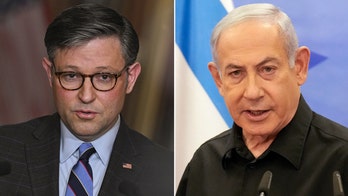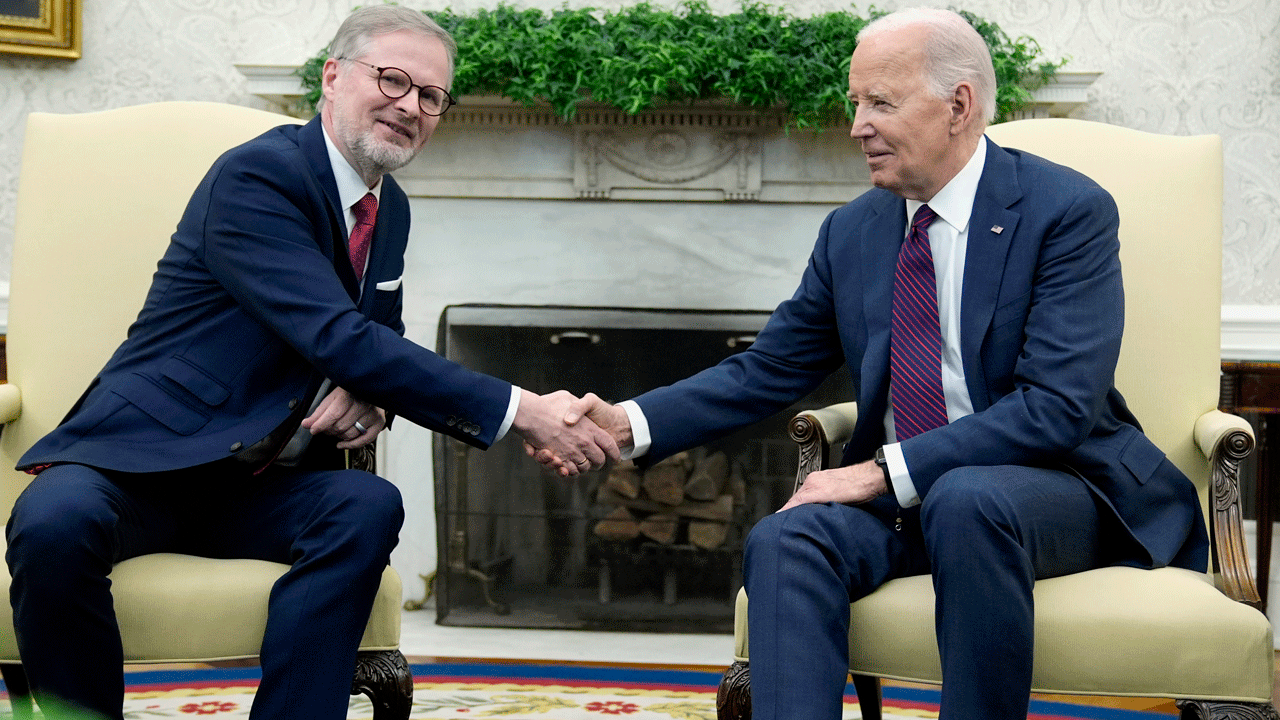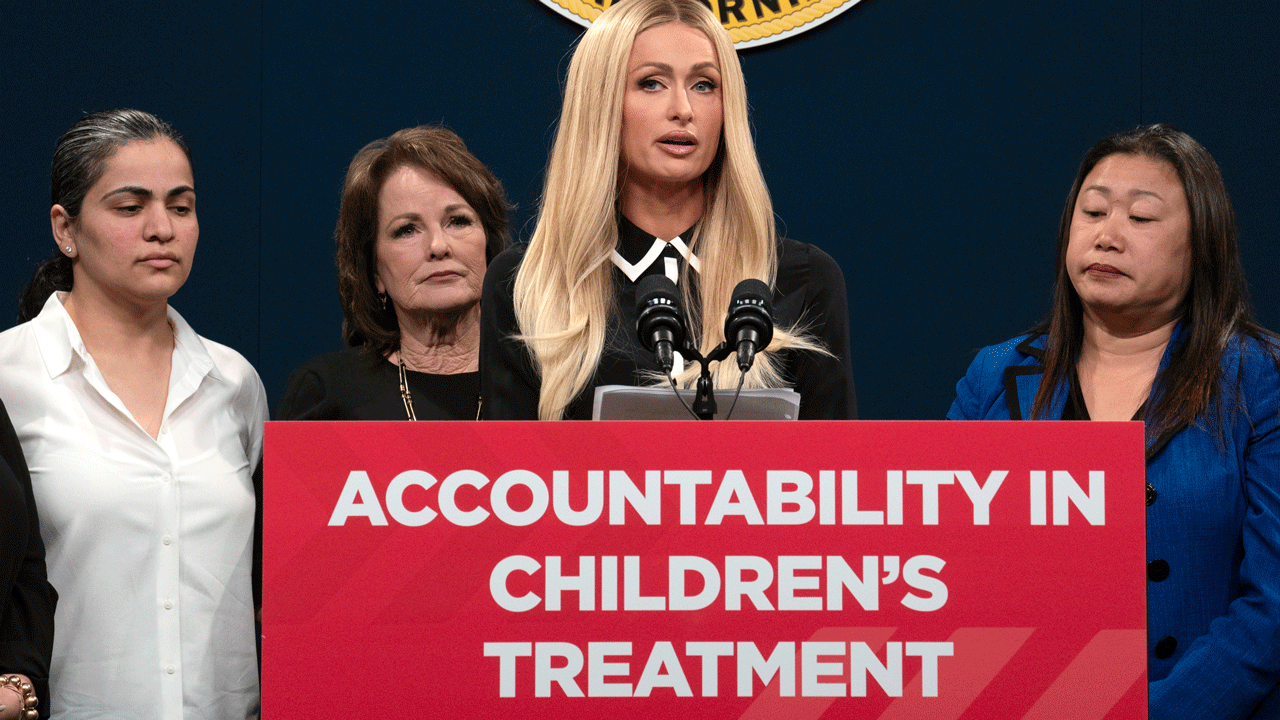Where does Amy Klobuchar stand on the issues?
From immigration to health care, see where Democratic presidential candidate, Amy Klobuchar, stands on the most pressing issues of the upcoming 2020 election.
Democratic presidential candidate Amy Klobuchar didn't come into the 2020 race with as much name recognition as some of her fellow lawmakers, but the Minnesota senator has outlasted big names like Sen. Cory Booker, D-N.J., and Sen. Kamala Harris, D-Calif., in the battle for her party's nomination.
A Yale and Chicago Law School graduate, Klobuchar interned for then-Vice President Walter Mondale in college before embarking on a career as an attorney and a prosecutor. She was elected to the Senate in 2006.
Here is where Klobuchar stands on some of the top issues voters care about in the 2020 campaign.
Health care
Klobuchar, a centrist Democrat in the Senate with a history of working with Republicans, has distanced herself from the sweeping changes "Medicare-for-All" would bring. Instead, she advocates a government-backed "public option" that would expand on either Medicare or Medicaid to compete with private insurance.
WHERE DOES BERNIE SANDERS STAND ON THE ISSUES?
Former President Barack pushed for a public option to be included in the Affordable Care Act before it was eventually left out due to a lack of votes in Congress.
Klobuchar's position clashes with that of more progressive candidates Sen. Bernie Sanders, I-Vt., and Sen. Elizabeth Warren, D-Mass., who would virtually eliminate private insurance in favor of a single-payer "Medicare-for-All" system.
Klobuchar also takes a more moderate position than some of the other candidates in the primary race on whether or not illegal immigrants should receive government health care.
When asked on CBS' Face the Nation last summer whether she would support government health care for illegal immigrants, Klobuchar said she would have the government take care of those individuals in the short term but address the larger issue through immigration reform.
"That was a yes for immediate health care needs," she said. "But as far as other benefits, I think we need to -- that has got to be a part of the discussion of comprehensive immigration reform."
Climate and the environment
Klobuchar co-sponsored Rep. Alexandria Ocasio-Cortez's Green New Deal resolution in the Senate. The nonbinding resolution presents a bold vision for how the U.S. government could fight climate change while also pushing various social justice goals and greatly expanding the size of the government.
"The climate crisis isn’t happening in 100 years — it’s happening now," her campaign website says, portraying the urgency many Democrats feel about climate change. "2018 was the fourth hottest year on record globally and it was another near-record year for U.S. weather and climate disasters."
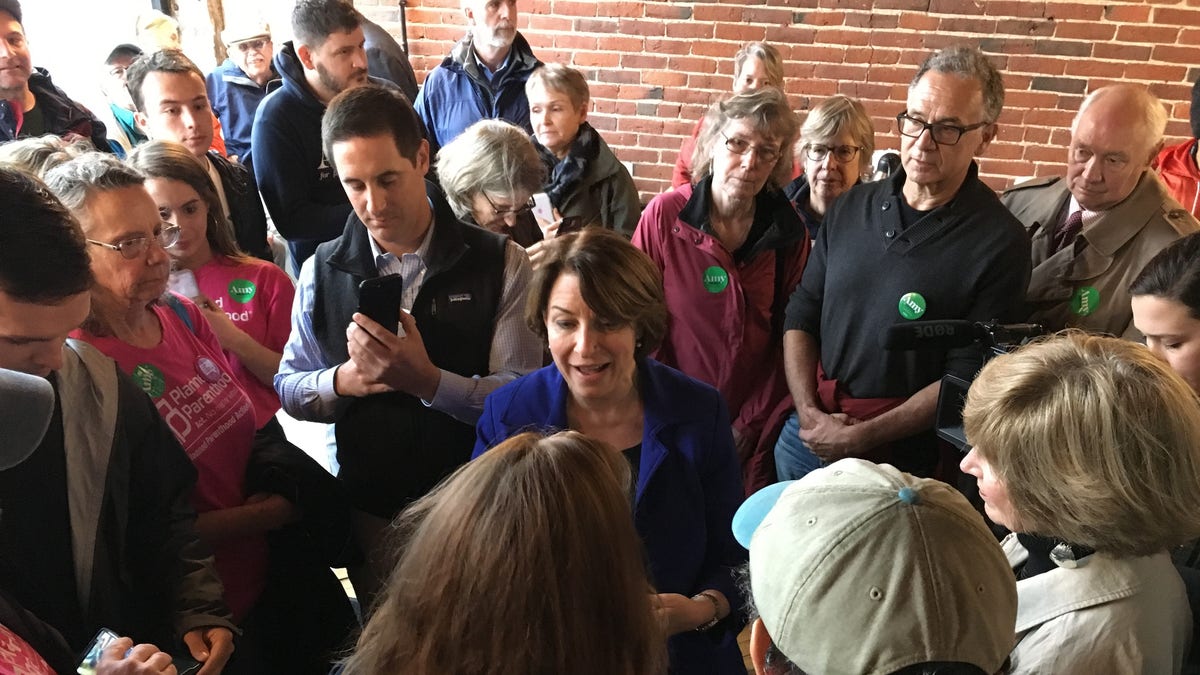
Democratic presidential candidate Sen. Amy Klobuchar of Minnesota speaks with voters at a cafe in Concord, NH on Oct. 17, 2019
WHERE DOES JOE BIDEN STAND ON THE ISSUES?
Klobuchar's climate plan, however, would cost $1 trillion over 10 years, according to Politico, which puts her agenda among the least expensive in the field, along with Joe Biden and Pete Buttigieg. Warren's plan would cost $3 trillion while Sanders' plan will run a whopping $16 trillion.
Like most of the Democratic candidates, Klobuchar sets a goal of 2050 for the U.S. to reach net-zero carbon emissions. But she again breaks from the progressive wing of her party by not wanting to ban fracking, a controversial method of extracting natural gas from underground.
Economy and minimum wage
While Republicans have credited the 2017 tax cuts signed by Trump with boosting the U.S. economy, many Democrats have railed against what they view as a break for the rich and corporations.
Several members of the primary field say they would return the corporate income tax rate to 35 percent -- the level it was at before Trump and Congressional Republicans cut it to 21 percent -- but Klobuchar seeks a middle ground of 25 percent.
WHERE DOES ELIZABETH WARREN STAND ON THE ISSUES?
She also does not follow her more progressive competitors in supporting a wealth tax, a levy on the accumulated net worth of the very richest individuals and families. Klobuchar does, however, fall in line with the Democratic orthodoxy of supporting a $15 federal minimum wage.
Immigration
Klobuchar has been critical of Trump's immigration policies, specifically the border wall and family separation, like most of the Democratic field.
But she does not fully support decriminalizing illegal border crossings as several other candidates do. On ABC's This Week last summer she drew a distinction between her position and that of her far-left competitor, Warren.
"No, I don't support open borders and simply getting rid of the statute," she said. "I support different enforcement priorities."
Klobuchar does, however, back a path to citizenship for illegal immigrants already in the country -- a position taken by every Democratic presidential candidate.
Criminal justice
Klobuchar is one of the least pro-marijuana candidates in the Democratic primary field, though not a pot abolitionist like many in the GOP.
She would leave legalization up to the states if elected rather than taking the lead federally, a centrist approach compared to what Sanders or Warren would take.
Additionally, she has not signed on as a co-sponsor on either the Marijuana Opportunity Reinvestment and Expungement Act (MORE Act) or the Secure and Fair Enforcement Banking Act (SAFE Banking Act), the two major marijuana-related bills to work their way through Congress last year.
CLICK HERE TO GET THE FOX NEWS APP
The MORE Act focuses on social justice goals and rescheduling marijuana while the less ambitious SAFE Banking Act aims to ensure cannabis businesses have access to financial services. But Klobuchar didn't sign on with either one.
Klobuchar also bucks Warren and Sanders on voting rights for felons. While both have entertained letting convicted felons vote from behind bars, Klobuchar simply supports restoring their voting rights once they have served their time.
She does, however, adopt the nearly-universal Democratic position that the death penalty should be abolished.

